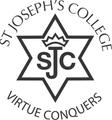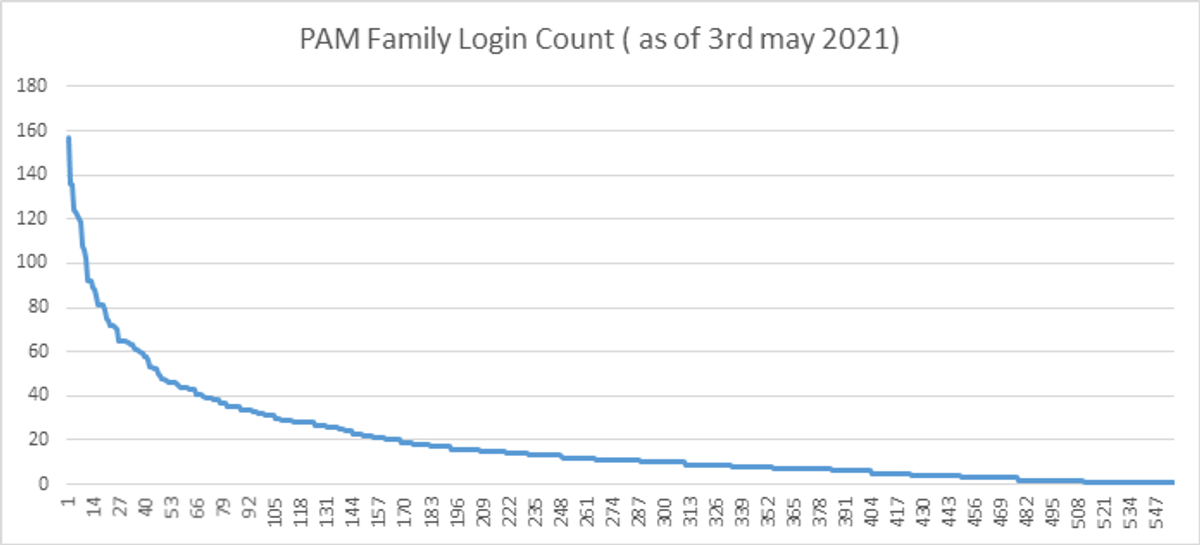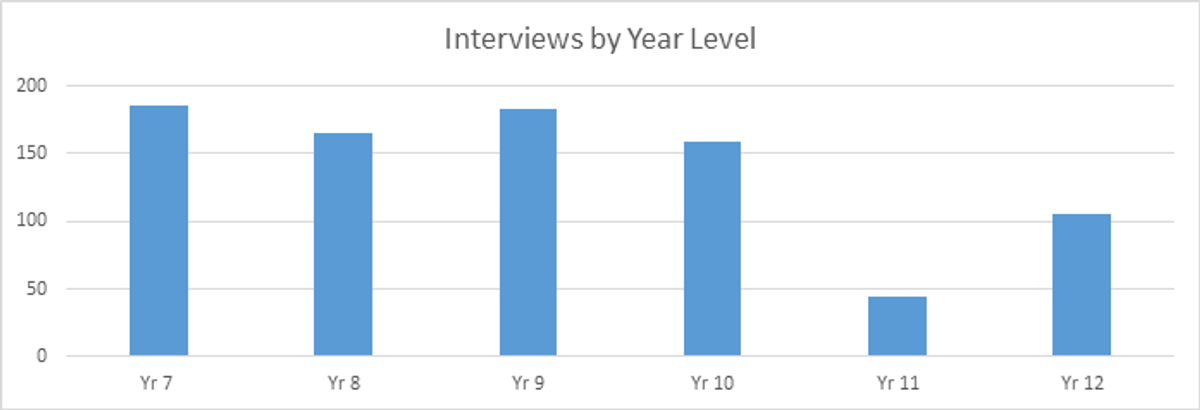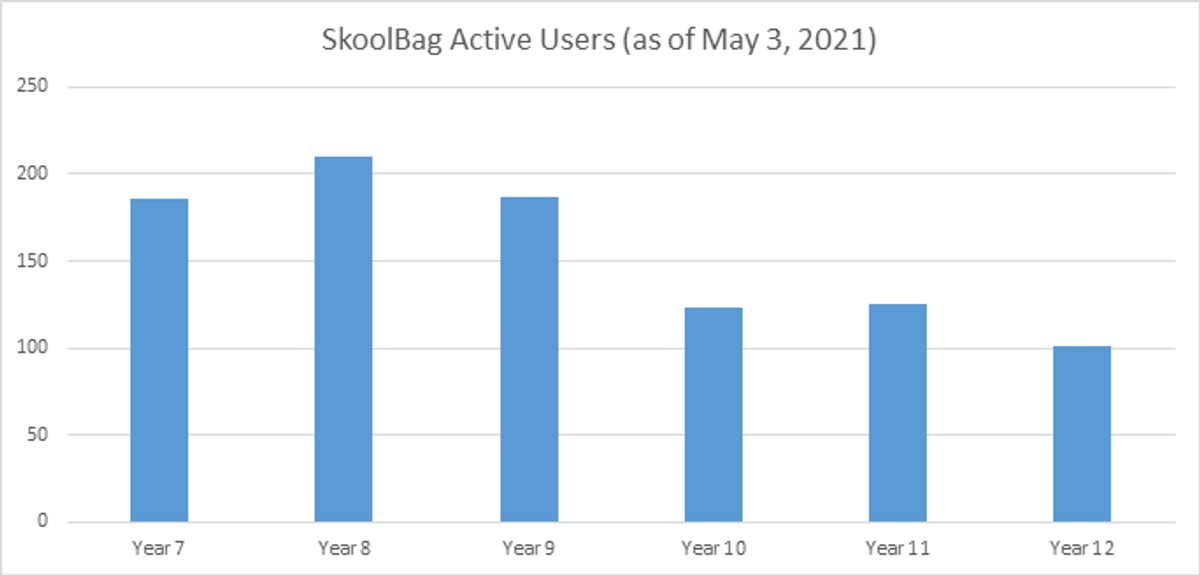DEPUTY PRINCIPAL LEARNING AND TEACHING

The beginning of Term 2 has been very busy with many events taking place including St Joseph Feast Day, Cross County, ANZAC Day celebrations, St Joseph the Worker Mass, and Parent/Student/Teacher Interviews. They all contribute to the fabric that makes up our community.
REPORTS
Reports were released to parents on the last day of Term 1 (April 1). To access the reports, parents either need to access PAM or get their child to access the report via SIMON. I am pleased to see a greater percentage of parents accessing PAM. At this time last year, 30% of parents had not accessed PAM. This year that figure is 15%. That is a considerable improvement. However, it is still a concern.
PAM usage is an essential part of the communication between our college and families. Given that teachers provide their marking and feedback via PAM, upcoming work, overdue work, medical updates, and reports are accessed by PAM, it is a vital piece of the communication process.
PAM usage 2021 (as of May 3, 2021)
There is great variety in terms of how often families access PAM. Currently, it ranges from one family who have accessed PAM 157 times all the way down to 97 families who have not accessed PAM this year. 105 families have accessed PAM more than 30 times this year.
PARENT/STUDENT/TEACHER CONFERENCES APRIL 26
Collaboration with Parents
One of the key components for achieving good learning outcomes for our students is to have good lines of communication between the college, the teacher, and families.
When teachers and parents work together with mutual respect and care, children achieve more at school and are happier to be there. Teachers acknowledge that parents are a primary partner in education, they have much to contribute and they are important to achieving the best learning outcomes for the students.
We recently held our Mid Semester 1 Parent/Student/Teacher Conferences. In light of this, I provide the following information from the Parent/Student/Teacher Conferences held on the April 26.
- 843 interviews booked.
- 170 of them virtual (20%)
- 673 In person (80%)
COMMUNICATION WITH PARENTS - SKOOLBAG
SkoolBag is a very important part of our communication process with families. Important information is passed on to families by this medium, including details concerning reports, events, Parent/Student/Teacher Interviews, camps and community days.
Instructions for downloading and using SkoolBag are at the end of this report.
A reminder that newsletters are available via SkoolBag but are also available on the college website and emailed to students.
NAPLAN
2021 May 11 to 13
The National Assessment Program in Literacy and Numeracy (NAPLAN) is a nationwide test of all Year 3, 5, 7 and 9 students in English and Mathematics. The National Assessment Program Literacy and Numeracy tests were undertaken from May 11 to 13. NAPLAN was organised in such a manner that disruptions to normal classes were minimised. We tried to keep NAPLAN very low profile – we did not want students getting anxious about the tests. The NAPLAN results are but a small part of what school is about.
2022
At this time, NAPLAN will be conducted online in 2022, however, this will be confirmed following trials from participating schools.
According to the NAPLAN website NAPLAN Online provides better assessment, more precise results and a faster turnaround of information. The assessments can run through a real-time internet connection or onscreen without an internet connection. Watch the short clip: Understanding NAPLAN Online (2m 11s).
NAPLAN Online is a tailored test that adapts to student responses, presenting students with questions that may be more or less difficult – resulting in better assessment and more precise results. Please watch the Tailored testing video (3m 6s) for more information.
GAT - Wednesday June 9
Why the GAT matters and how to use it to your advantage…
The General Achievement Test (GAT) is a three-hour assessment based on your general knowledge ranging from English, Mathematics and Humanities topics. The general vibe felt by the majority of VCE students is that they aren’t really too sure why they have to take part in this ‘exam’ and as a result, most have little care for it. However, the GAT is an important component in the VCE assessment process. Let’s see why:
Standardising how teachers grade school assessed coursework (SAC) between different schools…
Have you ever talked to your friend from another school and realised how unfair it was that their SAC length for the same assessment was twice the amount of time you had for your SAC? Or that perhaps they received the English prompt a week prior to the SAC, rather than during the SAC like you did? Well, this type of discrepancy can be compensated by the GAT as it helps to eliminate any biases from school to school. This means that ultimately, when SAC marks contribute to your overall study score, you can be sure that your grades have been fairly compared to all other VCE students across the state. This also means that as a whole cohort, the students undertaking VCE at your school should all try to do their best because a better outcome will reflect better on the school’s grading system.
Ensuring that your exam marks at the end of the year reflect your level and skills…
All end-of-year papers are checked twice by two different assessors who independently give you a score for your exam. Now if they both give you a similar score then great, your exam has been marked. If not, a third assessor will then look at your exam in order to reach an agreement. Then, there is a last check against your GAT mark. If it so happens that your exam mark is much lower than what your GAT mark anticipated you to obtain – in other words, if you received a high GAT mark which demonstrates your strong skills in English, Mathematics, Science or Humanities depending on the subject in question, then the paper will be reassessed again. So, if you do well in the GAT and receive an excellent score and for some reason you under-perform in the exam, then the GAT mark can help lift up your score. If your GAT mark is relatively low, then it probably can’t help you, despite you receiving an unexpected low exam grade. Thus, the GAT mark will only ever help you, it can never bring your mark down. That’s another reason why you should try to do well.
Derived Examination Score (DES)…
Some students apply for a DES when they experience hardship during their VCE exam period such as personal trauma or an accident. In such situations, the GAT is compared with their exam mark to see whether or not the student demonstrated their full potential or if they under-performed because of their current situation. Again, if the student received a lower exam mark but has a high GAT score, it can mean that perhaps the student didn’t do as well as they could have, and thus, their grade may be boosted upwards. Many students believe that they are immune to anything happening to them before or during the exams, but you never know. You may as well take advantage of what VCAA is offering you – basically a ticket to a better ATAR if you’re ever in need.
ACCELERATED STUDENTS
Due to the way we structure our timetables, it is possible for Year 10 students who meet the criteria to accelerate in some VCE subjects. The Director of Learning and Teaching, Mr Emmet Brown and I will be meeting with all accelerated students in the last week of May to see how they are progressing and if there is anything else we can do to support them with their academic acceleration.
TUTOR
We are currently looking to employ an additional Literacy tutor for two days per week. Someone who is able to work with junior and senior students. We are confident that we will be able to employ a former Year 12 English and Psychology teacher in this role.
UPCOMING YEAR 10 ASSEMBLY
Mr Heath McClaer and I have been working on a presentation to Year 10 students which will be presented in a year level assembly on May 17.
We will focus on subject selection, pathways on offer at St Joseph’s College, your plans for the medium-term future (where do you want to be in five years’ time?) and ways to ensure you have the best possible opportunity to reach your goals.
As part of this process, all Year 10 families will receive a letter from the college which will outline what an important stage in their child’s education Year 10 is and why the next two years needs to be considered carefully.
SKOOLBAG INSTRUCTIONS
Mr Greg Kluske
Deputy Principal Learning and Teaching






